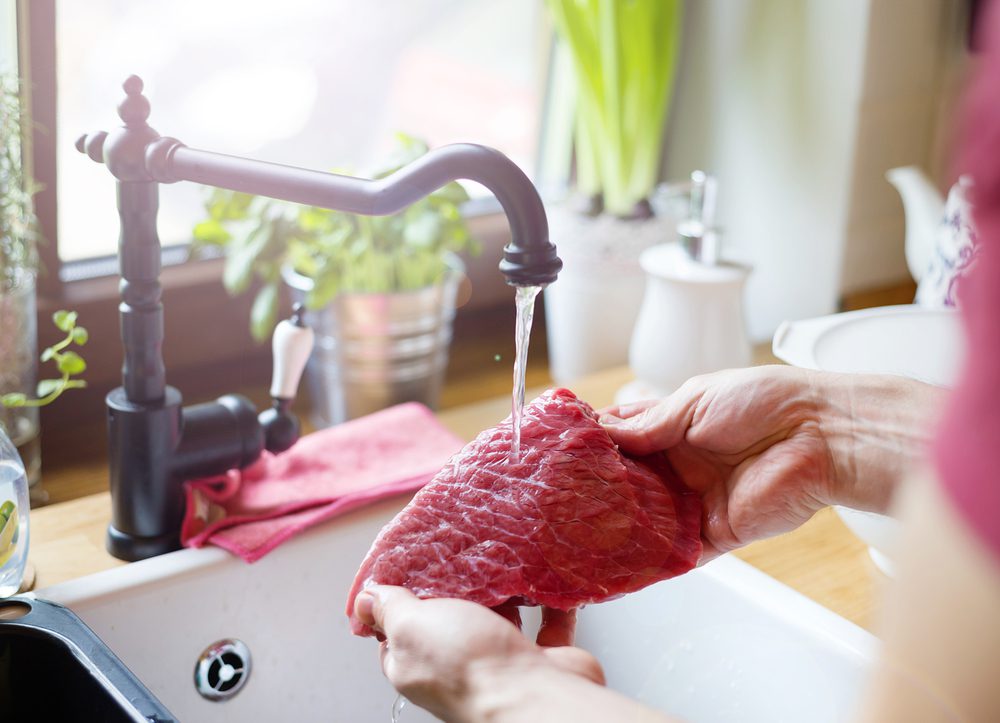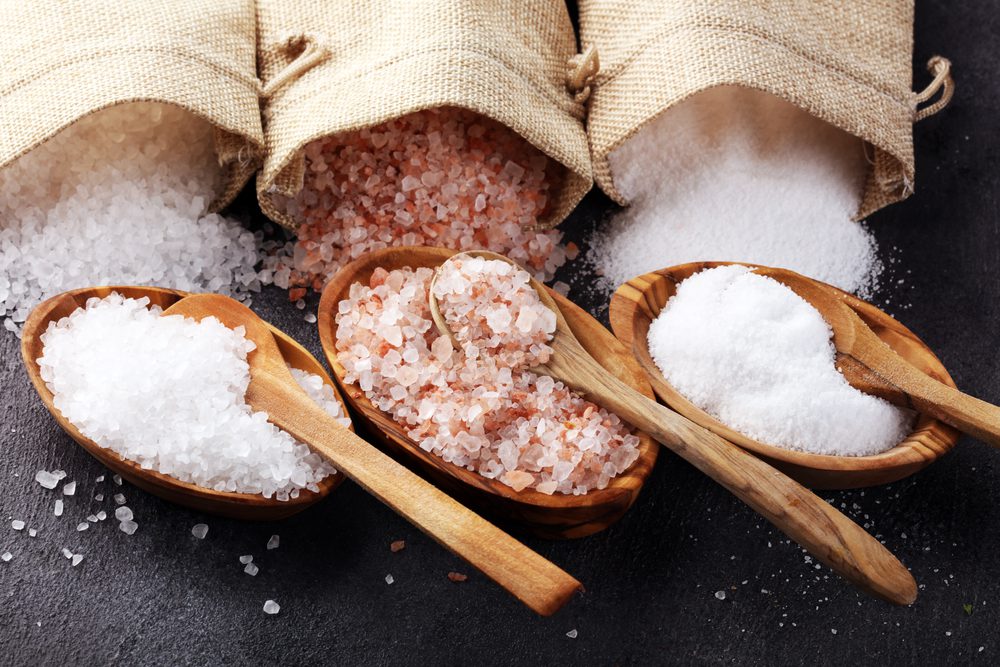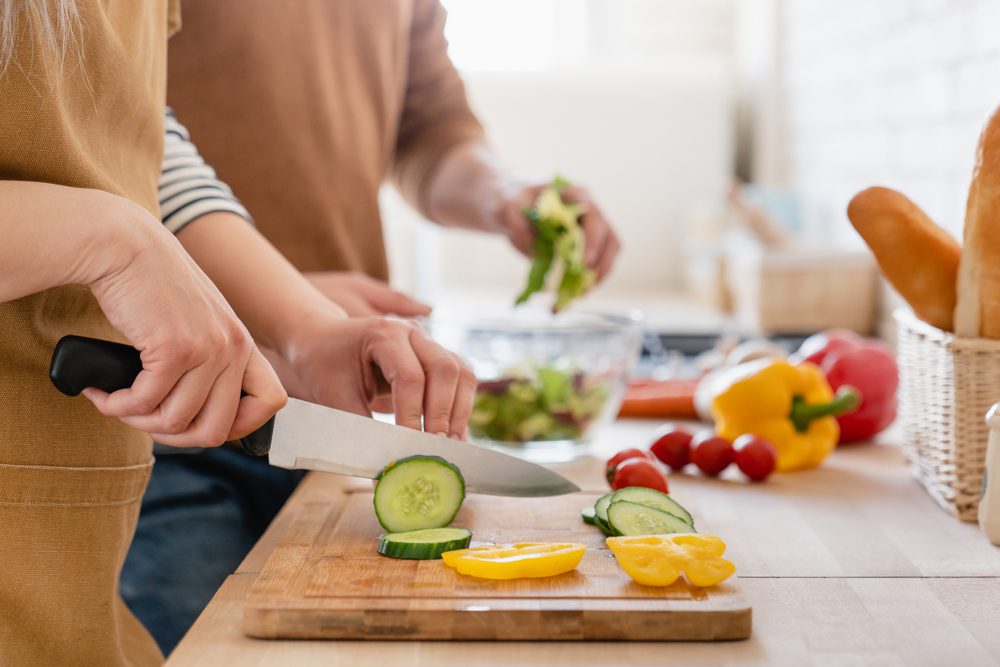Which Kitchen Mistakes Are You Making?
Every budding cook begins in their kitchen at home, discovering the ways of this skill and earning the notable title of “being able to cook.” And because of the pandemic in recent years, it seems like more and more people are honing their skills in the kitchen.
But even if you’ve just started cooking or have been at it for the last decades, there are many common kitchen mistakes that many people seem to make.
Ranging from cooking techniques to general kitchen knowledge, fixing these mistakes will help level up both your food safety AND cooking skills.
You can become a better cook by knowing how to avoid some of the most common blunders and learn what you SHOULD be doing in the kitchen.
So, could YOU be making any cooking mistakes? Let’s find out! Keep reading to see the 10 most common mistakes people make when cooking!

Kitchen Mistake: Do YOU Wash Your Meat?
Isn’t washing stuff supposed to remove the bacteria? Well, by washing your meat and poultry, you’re really just increasing the likelihood of cross-contamination because bacteria spreads by splashing water onto your sink and any other kitchen surfaces.
The heat from cooking will kill any pathogens lying around and keep you salmonella-free if cooked properly. So unless there’s any visible dirt on the meat, you can skip the washing.
But, if you’ve bought your meat from a wet market or where the sanitary conditions might not be as high, you can wash the visible dirt or blood away. Just do so away from your other ingredients or kitchenware.
Kitchen Mistake: Do You Let The Meat Sit After Cooking?
In the culinary world, this is a cardinal sin! Whatever you do, fight your urge to cut into that beautiful-looking piece of meat after taking it off the grill. Wait about 5 minutes for the juices to distribute. Your taste buds will thank you for this tip!
Kitchen Mistake: Are You Using The Right Knife?
Before you grab your knife out, think about what you need it for. Are you mincing something small, like garlic? Or, will you be working with something bigger, like a whole chicken?
You might love your paring knife, but it’s not an all-purpose tool, and it doesn’t work well when tackling larger foods. Consider your chef’s knife as an all-purpose knife. This is the tool you turn to when cutting meat, slicing fruits and vegetables, and dicing herbs.
…And opt for a paring knife when working with a tiny piece of food.
Kitchen Mistake: Are you Tasting The Food As You’re Cooking
While we’re glad you have confidence in your cooking, not tasting your food is a big kitchen mistake. Even if you’re following a recipe, taste early and often to make sure you get the right taste.
Kitchen Mistake: You Shouldn’t Wash Your Eggs
Eggs are another kitchen staple that need to be untouched. These protein-packed ovals have a natural coating that prevents bacteria like salmonella from penetrating the shell.
And by washing them, you’re removing this layer of defense away from the egg and contaminating its insides. If you see visible dirt or droppings still stuck on the eggshell, you can wash them off but do so only right before cracking them.
Another hot topic of debate is whether eggs need to be stored in the fridge. The experts primarily recommend that they be chilled in the refrigerator to minimize bacterial growth further.
Kitchen Mistake: You Constantly Flip The Meat On The Grill
We’ll be brief with this one: You know how many times you need to flip a nice piece of meat? Once… That’s all it requires to get a nice, beautiful sear!
Kitchen Mistake: Frying wet vegetables in a pan full of hot oil
What you definitely should be washing are your veggies. But it’s a typical kitchen mistake to dump the rinsed greens into your frying pan immediately after washing them. The moisture will make your stir-fry soggy, turning it into a stew instead of a crispy delight.
Besides that, we all know that water and hot oil don’t mix, and you wouldn’t want the oil to splatter all around your kitchen.
Before you go all Gordan Ramsay and start tossing in the pan, let the veggies dry at least a little in the strainer, but we highly recommend a salad spinner to make the job easier.
Kitchen Mistake: Cooking Your Meat Immediately From The Freezer
Let the meat sit in your sink for roughly 30 minutes before you cook it to reach room temperature. This results in even cooking, so you don’t get a medium-well steak when you want a medium-rare one.

Kitchen Mistake: Not Seasoning Food While Cooking
Forgetting about seasoning when it comes to your food will leave you with an unbalanced, tasteless dish and just overall dull! It’s a massive disservice to a meal that could have otherwise been delicious.
Different seasonings work together to bring out the natural flavors of all the ingredients in your meal and needs to happen early on rather than at the end. It rounds flavors out, brings them together, and transforms the meal from bland to flavorful.
Kitchen Mistake: Trying To Save A Bad Meal By Adding More Things
Sometimes kitchen experiments go terribly wrong. It happens to the best of us. Don’t be afraid to scrap a lousy dish every once in a while. It’s part of the creative process of cooking.
Kitchen Mistake: Don’t Overcrowd Your Pan
Overloaded pans never give you the results you’re looking for. Whether we’re talking about meat, veggies, or even baking. Understandably, you’d want to cook that big batch of chicken tenders in one go, but you’re losing out on flavor and crispy brown skin by saving time.
The cooking process releases moisture within the meat, and if your pan is overcrowded, it will prevent that moisture from evaporating, ultimately boiling your meat instead of frying it. The same goes for veggies.
They’ll end up soggy instead of crispy. Also, it’ll be a challenge to guarantee that everything’s evenly cooked. Give your food room to breathe. You wouldn’t want to be squished together in a tight, hot space, either.
Kitchen Mistake: You Shouldn’t Be Lazy
It’s easy to choose “ready-made,” highly processed junk food. But nothing replaces the real thing. Buy all-natural ingredients from local farmers whenever possible.
Kitchen Mistake: Do You Use The Same Oil For Everything?
A pantry in a typical household will usually only have one type of oil, and people don’t think much about the different types of oils they use unless they’re at the supermarket. But the difference is that they have different purposes.
Olive oil, vegetable oil, extra virgin oil, coconut oil, and any other ones all have different “smoke points,” meaning they cook at different temperatures. We won’t cover every type of oil, but the most common ones are:
- Vegetable oils: They have a high smoke point and are best for deep-frying and cooking on high heat.
- Olive oil: It will have a medium smoke point and is best for general frying and all-around use.
- Extra virgin oil: It will have a low smoke point and many flavors, but you’ll ruin it by high heat cooking.
Kitchen Mistake: Do You Over or Under Season?
You can very quickly go overboard with the salt and other seasonings. But use water, lemon juice, or vinegar to dilute it when this happens.
Now, the only thing worse than over-seasoning is under-seasoning. Which is why you should always taste your dishes before you serve them.

Kitchen Mistake: Don’t Use The Same Cutting Board For Everything
There will always be a high risk of cross-contamination if you cut your fresh tomatoes on the same cutting board where you chop your raw chicken.
The general rule is to have a few cutting boards in your kitchen, one for meats and one for cooked/ready-to-eat foods like fruits and vegetables. There’s something to be said about the size of your cutting board as well.
Those tiny cutting boards are adorable, but they’re not that useful aside from slicing a few strawberries or prepping a garnish for a drink. And, while a whole chicken may fit on there, it’s far too cramped to work neatly and efficiently.
If you’re looking, here’s one of our favorite cutting boards from Amazon.
Kitchen Mistake: Read The Entire Recipe Before You Begin!
After a busy day, you’re probably in a rush to make dinner. And while hunger is understandable, you shouldn’t rush to throw something together.
Some recipes won’t be written in the correct order, and there’s nothing worse than getting halfway through a recipe to find out that you’re missing some ingredients.
Before you do anything, your first order of business should always be reading the recipe all the way through. It’ll give you a better idea of precisely what you’ll be doing, and you’ll have a chance to make sure you have all the ingredients and equipment you need.
Have you been making any of the mistakes we’ve mentioned above? We hope this article helps you avoid any of them in the future!
And if you liked this article, check out: Healthy Skin: 8 Foods You Should Consume





